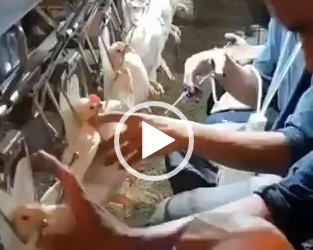The Director-General of, the National Agency for Food and Drug Administration and Control (NAFDAC), Prof. Mojisola Adeyeye, has assured Nigerians that the current high cost of medicines in the country will become a thing of the past as the agency in partnership with the pharmaceutical industry working hard to bring down the cost of drugs, just as it frowns at the polarisation of fake medicines in the market
Speaking in the same vein, the Coordinating Minister of Health and Social Welfare, Prof Ali Pate, also assured Nigerians that the various policy measures already put in place by the President Bola Tinubu administration would soon begin to reflect positively on the cost of essential medical commodities.
The duo made the assertions at the webinar lecture organised by The Cable Newspaper to celebrate its tenth anniversary with the theme: ‘Addressing Costs of Medicines’.
Prof Adeyeye identified the rejuvenation of the local pharmaceutical industry as a panacea for the high cost of medicines in the country. She said locally manufactured medicinal products would be more accessible and affordable than imported drugs.
According to her, the devaluation of the Naira accounted largely for the high cost of production locally as the high exchange rate made procurement of raw materials and equipment imported for production extremely high, adding that due to difficulty associated with procurement of dollars, the cost of the imported drugs has also hit the roof.
She said two multinationals left which caused the cost of drugs they produce to go up.
To encourage the local pharmaceutical industry to grow, Prof Adeyeye reiterated that NAFDAC under her leadership started the 5 plus 5 regulatory scheme where a company that has been importing drugs that the local pharmaceutical industry can produce will get a last five-year renewal. During the five-year renewal period, the importer must migrate to local manufacturing or partner with a local manufacturer.
“Our manufacturers import everything except water,” she said, adding that the raw materials – Active Pharmaceutical Ingredients (APIs) and the non-active called Excipients-are all imported. “I told the industry operators that we need to start making some APIs locally and that has resulted in Emzor almost completing their facilities in Sagamu.
“They are going to be making four anti-malaria APIs-sulfadoxine, Pyrimethamine, Artemether, and Lumefantrine.
“The Fidson consortium is also planning to manufacture some APIs. The DG said the initiative was aimed at reducing the cost of drugs eventually.
“But we cannot start manufacturing locally without strengthening the regulations because we have never regulated local manufacturing of APIs.
“Therefore, in preparation for the manufacturing, the intellectual capacity has to be strengthened; NAFDAC organised a workshop in October 2023 that attracted 150 participants – regulators, manufacturers, professors from the universities, and the future workforce -part four students,” she said.
Prof Adeyeye lamented that because of the high cost of medicines, some unscrupulous people will start making substandard falsified medicines, warning that NAFDAC is not asleep.
She said: “Our work is 24/7 in terms of regulation and control of SF medicines. We do unannounced inspections of local manufacturers. Since February 16 and 17 this year, we have gone after the Open Drug marketers because some of the unscrupulous manufacturers or importers use the open market as a haven for substandard falsified medicines.
“We will be using traceability technology to monitor the supply chain. NAFDAC is leading in Africa and second in the world using track and trace technology.”
Joining the conversation, the Minister of Health and Social Welfare, Prof Pate, noted that the escalating costs of pharmaceuticals are part of the global phenomenon, expressing regrets that for the past 20 years, the nation has been catching up, stressing that the present administration is focused on solving the issue.
“We are working hard to do so through the Presidential Initiative to unlock the pharmaceutical value chain that the president announced in October 2023, but two pockets of issues underlying what we are observing now. Nigerians are hurting. There is forex devaluation which is on the supply side.
“The ability to buy materials, equipment, the infrastructure deficit, and some infrastructure for manufacturing that we have is not at the level that could meet up the demand that we have,” he said










